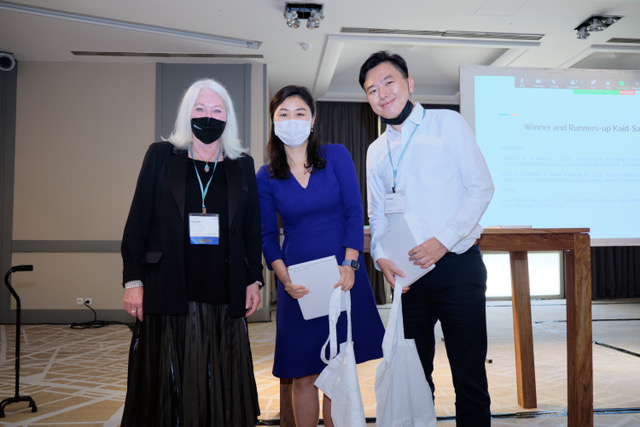PCR Awardee Questionnaire: The Kaid-Sanders Best Political Communication Article of the Year Award (2022)

Name(s) & affiliation:
- Jin Woo Kim, Assistant Professor, School of Communication, Kookmin University
- Eunji Kim, Assistant Professor, Department of Political Science, Columbia University
Project title:
- Temporal dynamics of selective exposure
Publication reference, link (APA 7th):
- Kim, J. W., & Kim, E. (2021). Temporal Selective Exposure: How Partisans Choose When to Follow Politics. Political Behavior, 43, 1663–1683. https://doi.org/10.1007/s11109-021-09690-1
Tell us something about you/your team and how and why you decided to focus on this research
- We started this project when we were Ph.D. students at Penn. We noticed a tension in the literature: although echo chambers were blamed for exacerbating political polarization in the US, empirical evidence of selective exposure was mixed at best. Why are people’s beliefs and attitudes so polarized if most people have relatively balanced media diets? Our answer was that previous conceptualizations of selective exposure ignored one important aspect of political news consumption: temporal dynamics. We hypothesized that people can choose when to engage with politics to avoid encountering uncongenial news, and that can increase polarization.
In 280 characters or less, summarize the main takeaway of your project.
- Since people pay more attention when their preferred party is performing well, and less attention when the party is doing poorly, people may receive biased information flows even if they follow central or balanced sources.
What made this project a “polcomm project”?
- Selective exposure is perhaps one of the most widely studied topics in the political communication literature, dating all the way back to classical work from the Columbia School. We added a little twist to this classic concept by focusing on temporal dynamics.
What, if anything, would you do differently, if you were to start this project again? (What was the most challenging part of this project? …& how did you overcome those challenges?)
- We thought our intuition was right from the beginning, but we had a hard time finding the right empirical strategy to test our hypothesis. Then Matt Levendusky suggested that we use the 2008 Annenberg survey data to examine how partisans’ news consumption behaviors changed before and after the collapse of Lehman Brothers in 2008. So the data was already there. It just took some time (and a great mentor) for us to realize that.
What other research do you currently see being done in this field and what would you like to see more of in the future?
- There has been a growing interest in temporal dynamics in political communication processes. This includes studies that focus on overtime fluctuations in political discourse, news consumption, and opinion formation, among others. We believe this is a step in the right direction, as focusing on temporal dynamics can provide advantages in causal inference and can also lead to interesting theoretical insights.
What’s next? (Follow-up projects? Completely new direction?)
- We started this project thinking temporal selective exposure may be one of the causes of political polarization. Our previous paper demonstrated that people indeed engage in temporal selective exposure, but it did not provide evidence of its role in amplifying political polarization. To address this gap, we are planning to conduct experiments to test the effect of temporal selective exposure on polarization.
PCR Awardee Questionnaire: The Kaid-Sanders Award (2022)
